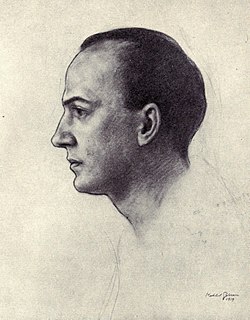A Quote by Isabel Allende
Conceit is a privilege of the ignorant; the wise man is humble because he knows how little he knows.
Related Quotes
There are four types of men in this world: 1. The man who knows, and knows that he knows; he is wise, so consult him. 2. The man who knows, but doesn't know that he knows; help him not forget what he knows. 3. The man who knows not, and knows that he knows not; teach him. 4. Finally, there is the man who knows not but pretends that he knows; he is a fool, so avoid him.
Man... knows only when he is satisfied and when he suffers, and only his sufferings and his satisfactions instruct him concerning himself, teach him what to seek and what to avoid. For the rest, man is a confused creature; he knows not whence he comes or whither he goes, he knows little of the world, and above all, he knows little of himself.
Men are four;
He who knows and knows not that he knows. He is asleep; wake him.
He who knows not and knows not that he knows not. He is a fool; shun him.
He who knows not and knows that he knows not. He is a child; teach him.
He who knows and knows that he knows. He is a king; follow him.
The heights by great men reached and kept
Were not attained by sudden flight,
But they, while their companions slept,
Were toiling upward in the night.
No grand inquisitor has in readiness such terrible tortures as has anxiety and no spy knows how to attack more artfully the man he suspects, choosing the instant when he is weakest; nor knows how to lay traps where he will be caught and ensnared as anxiety knows how, and no sharp-witted judge knows how to interrogate, to examine the accused, as anxiety does, which never lets him escape.



































